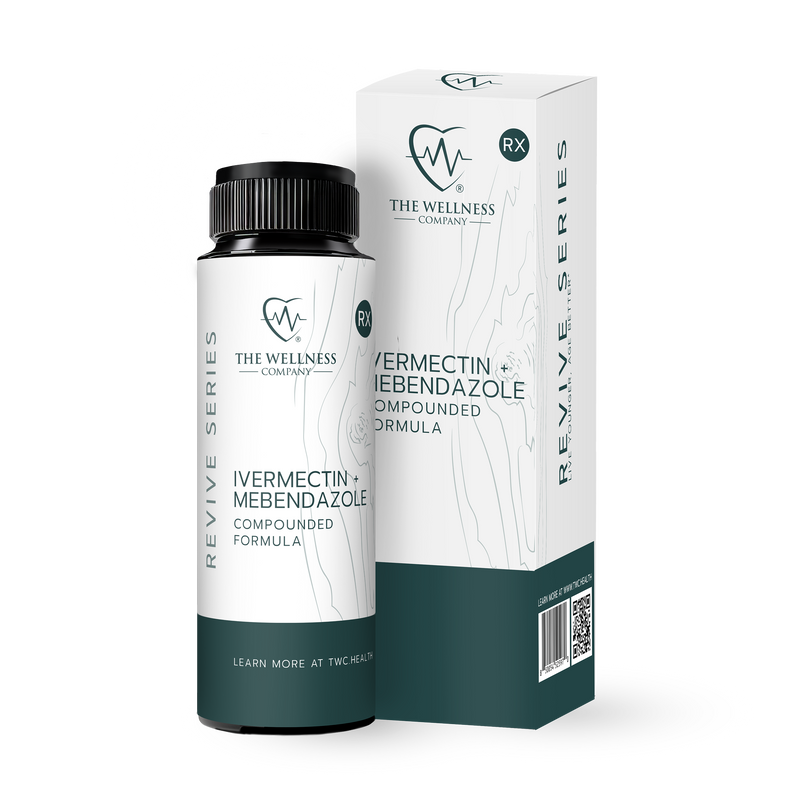A VACCINE FOR YOUR UTI?

Urinary tract infections are one of the most common infections in the U.S. Sobering statistics such as these prove this:
A third of women are diagnosed with a UTI before the age of 24 years and half develop at least one episode by 35 years of age. Up to 70% of women will suffer from a UTI during their lifetime, and of those, 30% will have recurrent UTIs (1)
UTIs occur when bacteria enter and multiply in the urinary system, which includes the kidneys, ureters, bladder, and urethra.
Symptoms of UTIs
- A burning sensation when urinating
- Frequent urination or the intense urge to urinate
- Cloudy, dark, bloody, or strange-smelling urine
- Pain or pressure in the back or lower abdomen
- Fatigue
- Fever or chills (the infection may have reached the kidneys, a serious condition, seek medical attention)
Vaccines for urinary tract infections have been available in other countries around the world and may soon be available in the US.
Each vaccine undergoing trials has its own mechanism of action and carries with it risks that may or may not be documented. If the past vaccine push has taught us anything, it is that “safe and effective” is not a proven statement.
Some of the urinary tract vaccines offered in other countries are:
- Uro-vaxom is a pill that’s supposed to be taken daily for three months (or at least 10 straight days during an acute episode)
- Uromune is a pineapple-flavored spray that’s misted under the tongue daily for three months. (Patients in the U.S. were able to import the spray up until this year when the FDA updated its regulations
- StroVac is injectable, given three times over six weeks, and is meant to prevent UTIs for about a year.
None of these vaccines are readily available in the US at this time; however, a look at the package insert for Strovac, which is licensed and available in Germany brings up some alarming side effects.
According to the package insert,
Strovac contains
Active substance: 0.5 ml suspension for injection (=1 vaccine dose) contains at least 109 inactivated germs of the following type and quantity: Escherichia coli 7.5 x 108th, Morganella morganii 3.75 x 107, Proteus mirabilis 3.75 x 107, Klebsiella pneumoniae 1.5 x 108th, Enterococcus faecalis 2.5 x 107
Other ingredients: Repolymerized gelatin, disodium hydrogen phosphate, potassium dihydrogen phosphate, sodium chloride, thiomersal, aluminum phosphate, water for injections, and traces of phenol.
Reactions to Strovac include:
Exhaustion, and flu-like symptoms with body aches, fever, and chills often occur.
Headache, dizziness, nausea. Cardiovascular problems up to and including circulatory collapse have been reported rarely. Temporary, regional swelling of the lymph nodes occurred very rarely. Also reported very rarely: allergic reactions (exanthema through to anaphylactic reactions), gastrointestinal symptoms (such as vomiting, flatulence, diarrhea, reduced appetite), burning in the “bladder”, increased urge incontinence, kidney pain, perichondritis, Increase in liver values. Individual cases of neurological symptoms (e.g. paraesthesia, numbness or paralysis, meningeal irritation) were reported via the spontaneous reporting system. Individual cases with reactivation of a chronic herpes infection in temporal relation to the injection of StroVac were reported via the spontaneous reporting system.
U.S. is joining the UTI vaccine development scene
- The U.S. is developing its own version to be delivered via catheter to the bladder. It is unclear when this vaccine would be available.
- ExPEC9V, which is currently under clinical trial at UC Davis Health. This vaccine targets invasive E. coli disease, which is often associated with UTIs, especially in older adults. The vaccine is designed to stimulate the body's immune response against multiple strains of E. coli that can cause severe infections. It uses a conjugate vaccine approach, combining E. coli sugars with a protein from another bacteria, which helps to boost the immune response. (What possibly could go wrong?)
The debacle of the vaccination campaign against COVID-19, has taught us to not “trust their science”.
Antibiotic resistance is calling for different strategies to prevent and treat UTIs
It is widely known that the overuse of antibiotics has resulted in multidrug antibiotic resistance. Not just in urinary tract infections, but in many other cases, such as unnecessarily treating a viral illness with an antibiotic. There are several ways to prevent and treat mild cases of urinary tract infections before resorting to antibiotics.
Prevention Strategies
- Drink plenty of fluids, especially water, to help dilute urine.
- Wipe from front to back after using the toilet to prevent bacteria from the anal region from spreading to the urethra.
- Urinate soon after intercourse to flush away bacteria that might have entered the urethra.
- Avoid potentially irritating feminine products like douches and powders in the genital area.
- Avoid baths if you are prone to UTIs.
- Consider changing birth control methods if UTIs are frequent, as diaphragms and spermicidal agents contribute to bacterial growth.
- Wear breathable cotton underwear to discourage the growth of bacteria.
- After swimming, remove swimsuit and put on clean, dry underwear, UTIs love warm, damp areas to multiply.
- Cranberry juice (supplement form or unsweetened) can help prevent and fight UTIs. (2)
- D-mannose, a natural sugar that doesn’t not significantly raise blood sugar is found in supplement form, apples, cranberries, blueberries, and oranges. In fruit, the quantity may not be sufficient to act as a preventative source. (3)
- Probiotics- the gut and vagina are rich in the lactobacillus species of probiotics. Promising research points to the use of probiotics in the prevention of UTIs. One advantage probiotics have is they do not cause antibiotic resistance. (4)
Treatment Options
Before reaching for the prescription bottle of antibiotics, consult with your healthcare provider about trying some alternate treatments, especially if your symptoms are minor.
- Cranberry juice and D-mannose work not only to prevent but can also help treat urinary tract infections.
- Essential oils- many essential oils have demonstrated antibacterial properties. Oregano and thyme oil, for instance, contain Thymol and Carvacrol, which has been shown to be effective against many common pathogenic bacteria found in UTIs. (4)
- Biofilm disruptors-Biofilms are slimy matrixes that allow bacteria, both beneficial and pathogenic, to multiply and thrive in a protective cellular matrix. In the case of UTIs, pathogenic bacteria can hide in this matrix and cause illness. Interrupting and clearing the biofilm can allow natural and manmade antibiotics to reach the bacteria.
- Some natural biofilm disruptors are:
Tea tree, cinnamon, rosemary, thyme, and oregano essential oils along with many other essential oils have demonstrated antibacterial and biofilm disruptor properties. Some of these oils can be found in supplemental form, such as oregano oil. Consumption or use of any of these oils should not be done without medical supervision. (5,6)
If you need an antibiotic
If you do end up with a UTI, the Medical Emergency Kit contains two well-known antibiotics used to treat urinary tract infections:
- Trimethoprim/sulfamethoxazole (Bactrim, Septra): Often used as a first-line treatment.
- Amoxicillin/clavulanate (Augmentin): is also an antibiotic used to treat UTIs.
Prevention is always best, but it is reassuring to know that you have proven and effective prescription medications that can handle an urinary tract infection before it becomes more serious by turning into a kidney infection.
Citations:
- Abou Heidar, Nassib F.1,*; Degheili, Jad A.1,*; Yacoubian, Aline A.1; Khauli, Raja B.1,2,. Management of urinary tract infection in women: A practical approach for everyday practice. Urology Annals 11(4):p 339-346, Oct–Dec 2019. | DOI: 10.4103/UA.UA_104_19
- Stothers L. A randomized trial to evaluate effectiveness and cost effectiveness of naturopathic cranberry products as prophylaxis against urinary tract infection in women. Can J Urol. 2002 Jun;9(3):1558-62. PMID: 12121581.
- Kranjčec B, Papeš D, Altarac S. D-mannose powder for prophylaxis of recurrent urinary tract infections in women: a randomized clinical trial. World J Urol. 2014 Feb;32(1):79-84. doi: 10.1007/s00345-013-1091-6. Epub 2013 Apr 30. PMID: 23633128.
- Gupta V, Nag D, Garg P. Recurrent urinary tract infections in women: How promising is the use of probiotics? Indian J Med Microbiol. 2017 Jul-Sep;35(3):347-354. doi: 10.4103/ijmm.IJMM_16_292. PMID: 29063878.
- Brandes A, Dunning M, Langland J. Antimicrobial Activity of Individual Volatile Compounds from Various Essential Oils. Molecules. 2024 Apr 16;29(8):1811. doi: 10.3390/molecules29081811. PMID: 38675631; PMCID: PMC11054172.
- Khaled A. El-Tarabily, Mohamed T. El-Saadony, Mahmoud Alagawany, Muhammad Arif, Gaber E. Batiha, Asmaa F. Khafaga, Hamada A.M. Elwan, Shaaban S. Elnesr, Mohamed E. Abd El-Hack,Using essential oils to overcome bacterial biofilm formation and their antimicrobial resistance,Saudi Journal of Biological Sciences,Volume 28, Issue 9,2021,Pages 5145-5156,ISSN 1319-562X






















